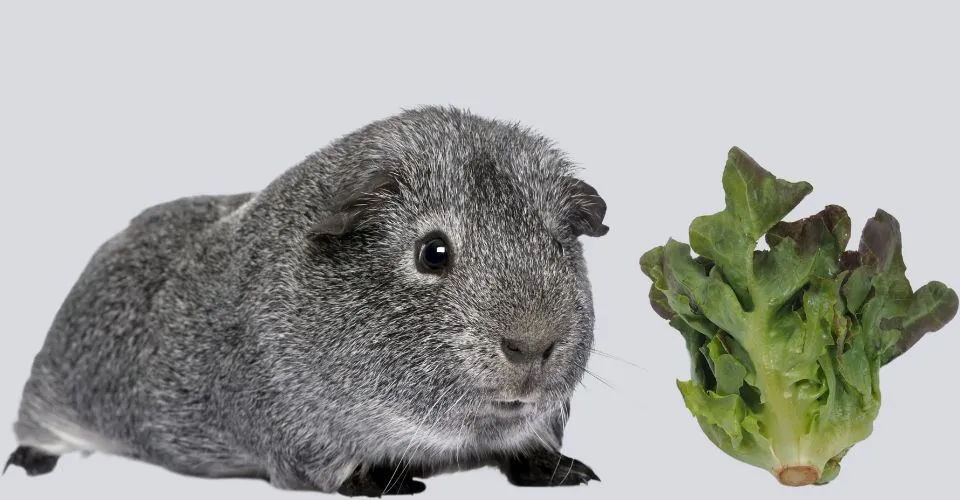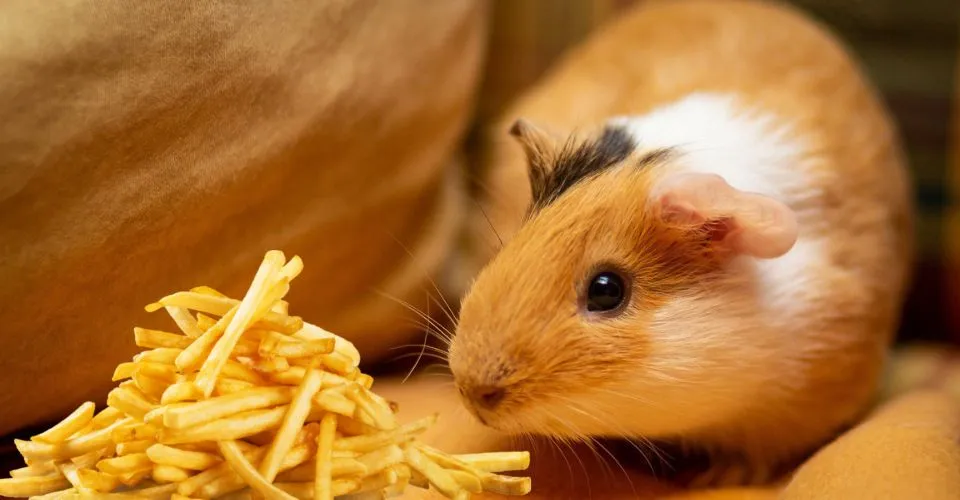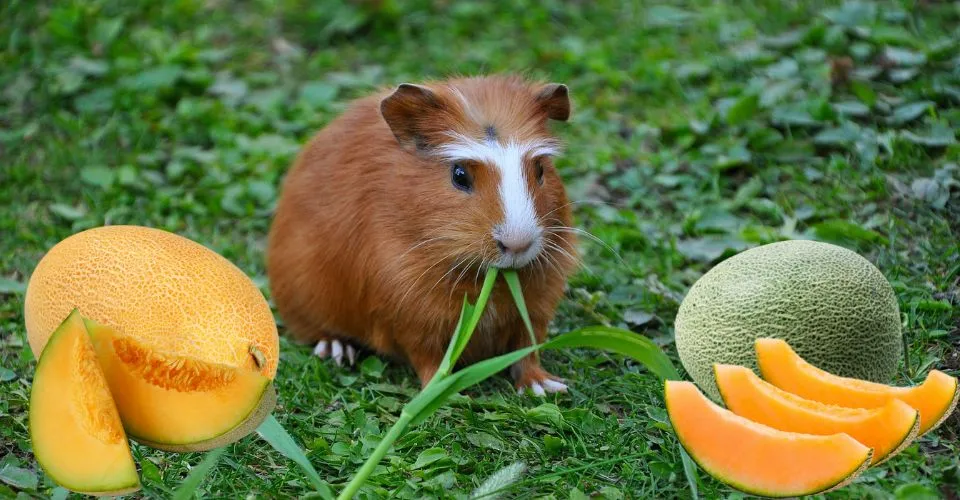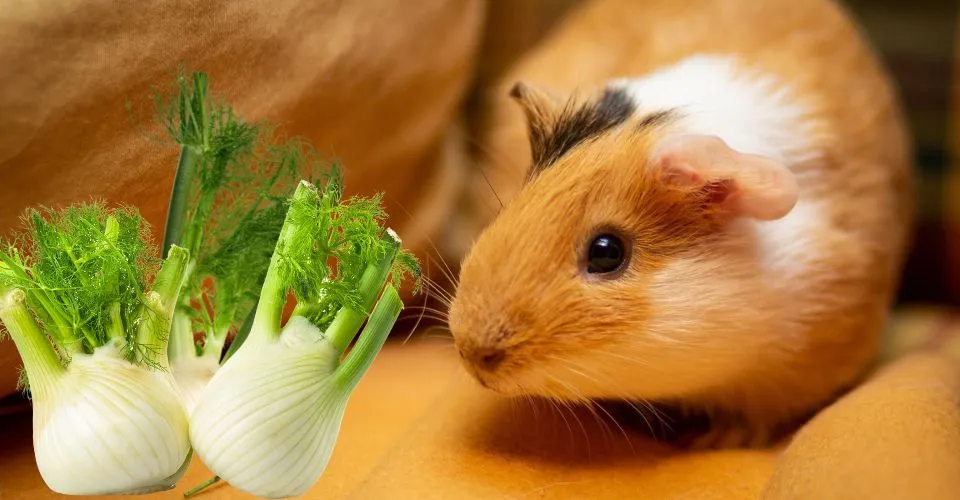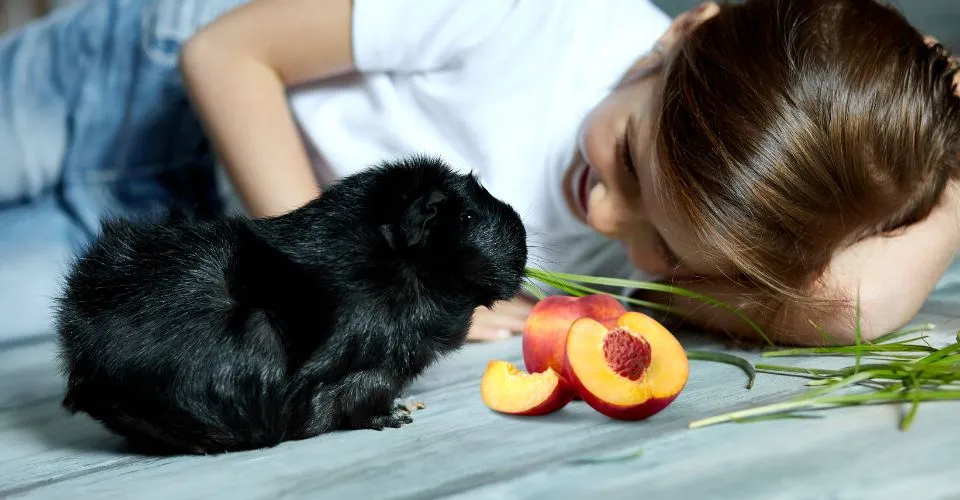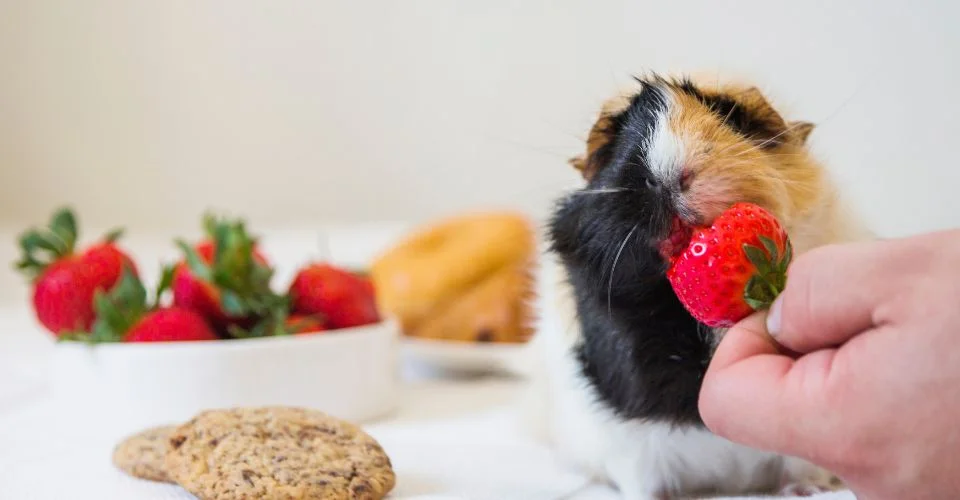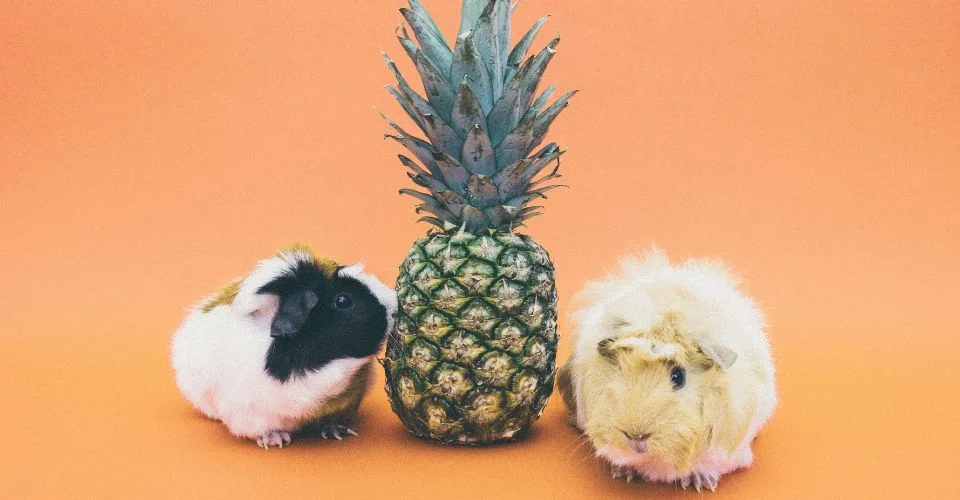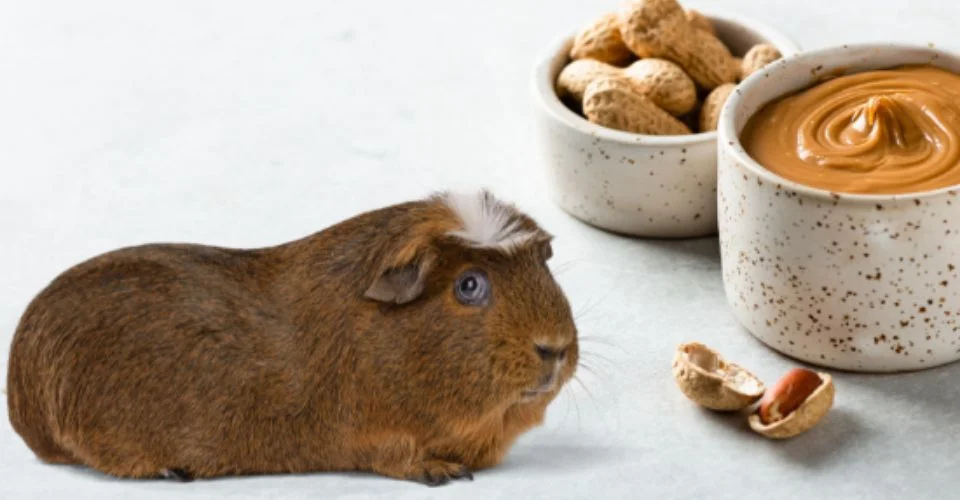Belonging to the Brassica oleracea species, Collard greens have been around for over 2000 years and their cultivation is often traced back to the ancient Greeks. Through various trade routes, collard green made its way to the United States and since then it has become a staple food across the Southern United States. One of the most popular and delicious ways of eating collard greens is by preparing “mixed greens,” which is prepared using collard greens with other leafy green veggies such as spinach, kale, turning greens, and mustard greens.
Collard greens make a safe and healthy treat for humans but can we say the same about guinea pigs? Can guinea pigs eat collard greens?
Guinea Pigs Diet: What Can Guinea Pigs Eat?
When keeping a guinea pig as a pet, it is our duty to take care of the guinea pig’s diet. What to feed guinea pigs and what not to feed them are key to taking care of guinea pigs. You need to provide a balanced diet to your pocket pet so that all its nutritional needs are met. The cornerstone of guinea pigs’ diet is guinea pig pellets and timothy hay. In addition to this, guinea pigs should also be fed fresh and raw vegetables and fruits in moderate amounts. Considering these raw vegetables and fruits for guinea pigs, you might wonder can guinea pigs eat collards. Can guinea pigs eat collard greens?
Can Guinea Pigs Eat Collard Greens?
Collard greens make a healthy leafy green veggie snack for guinea pigs. Guinea pigs are herbivores and in addition to their bulk food consisting of pellets and hay, they should also be fed fresh and raw vegetables and fruits.
Collard Greens make a healthy treat for guinea pigs s it is loaded with useful nutrients like vitamins A, C, and K, and fibers. But we should feed collard greens to our guinea pig only in moderate amounts, occasionally as a treat. We cannot make collards an integral part of our guinea’s diet as they also contain high amounts of phosphorus and calcium, which can be harmful to our piglets.
Can Guinea Pigs Eat Raw Collard Greens?
Raw collard greens are perfectly safe and healthy for guinea pigs to eat. Guinea pigs are herbivores, they are used to and are supposed to eat raw leafy greens.
Now that you know guinea pigs can eat raw collard greens, you might be wondering can guinea pigs eat cooked vegetables. Cooked collard greens to be specific?
No, where raw vegetables including raw collard greens, are perfectly safe and healthy for guinea pigs, eating cooked vegetables could get them tummy troubles and worse. Since guinea pigs are herbivores, they cannot actually digest processed food. So, eating baked or cooked vegetables would lead to gastrointestinal and other health issues in guinea pigs.
Are Collard Greens Good for Guinea Pigs?
Collard greens are not only safe but also healthy for guinea pigs if they are fed in moderate amounts. So, are there any health benefits of collard greens for guinea pigs?
To understand how healthy are collard greens for guinea pigs, we should take a look at the nutrient profile of collard greens.
Nutrient Profile of Collard Greens
Below we have given the amount of nutrients in a 100-gram serving of collard greens, according to the US Department of Agriculture.
| Nutrients | Amount per 100g |
| Vitamin C | 35.3 mg |
| Vitamin K | 0.16 mg |
| Vitamin A | 251µg |
| Calories | 32 kcal |
| Water | 89.6 g |
| Potassium | 213 mg |
| Carbs | 5.42 g |
| Fibers | 4 g |
| Sugar | 0.46 g |
| Manganese | 0.658 mg |
| Phosphorous | 25 mg |
| Calcium | 232 mg |
Note the nutrient content of collard greens is not limited to the above-mentioned nutrients. They contain many other nutrients as well.
Health Benefits of Collard Greens for Guinea Pigs
The above nutrient profile of collard greens would have made it pretty clear what health benefits it has to offer to our guinea pigs and what potential hazards they pose. Regardless, let’s take a brief look at the health benefits of collard greens for guinea pigs.
Vitamin C in Collard Greens Help With the Prevention of Scurvy in Cavies
Just like their loving human owners, guinea pigs cannot make their own vitamin C—they require an external source of it. It must be added to their routine diet. Given that vitamin Cis imperative for guinea pigs, it is added to their pellets. Guineas are also given external direct sources of vitamin C in the form of vitamin C tablets and vitamin C drops. One great external source of vitamin C for guinea pigs is collard greens. By eating fresh and raw collard greens, our piglet ingests a certain amount of vitamin C which helps them ward off the risk of scurvy, which is caused by the lacking or deficiency of vitamin C in guinea pigs.
Vitamin C also helps in maintaining healthy blood vessels, which is crucial for the smooth circulation of blood throughout the body.
Vitamin A in Collard Greens Helps With Coat Health and Visual Improvement
Collard greens contain a high amount of vitamin A, which is very useful for guinea pigs. It helps cavies maintain a healthy coat and also improves their skin health. On top of that, vitamin A also helps in improving the eyesight of guinea pigs.
Guineas have poor eyesight, which deteriorates as our little guineas grow old. So, it is imperative that we add ample vitamin A to their routine diet.
Vitamin K in Collard Greens Help With Blood Clotting and Healing Wounds
Vitamin K present in collard greens is a great coagulant. It helps in blood clotting in place of injuries and stops bleeding. This blood clotting is very important, if it were not for blood clotting, our guineas may end up losing a great deal of blood with injuries they might get from scratching, or while roaming around.
Manganese in Collard Greens Help Cavies in Keeping Their Blood Sugar Level in Check
Collard genes are also a great source of manganese which helps guinea pigs in maintaining many bodily functions. One of the great roles of manganese is to maintain the glucose level in the blood. It also helps in the proper functioning of the heart and boosts the immune system of younger guinea pigs.
Antioxidants in Collard Greens Help Guinea Pigs Fight Cancer
Collard greens also contain antioxidants named alpha-lipoic acid and sulfur-containing compounds, known as glucosinolates. These antioxidants help our cavies fight off chronic diseases such as cancer by destroying the free radical cells.
Potential Health Risks of Collard Greens for Guinea Pigs
Collard greens make a healthy treat for guinea pigs but only if it is being eaten in moderate amounts. If eaten in excess, little cavies may develop certain health issues.
Diarrhea
Eating collard greens in large amounts can lead to the development of severe diarrhea in guinea pigs. Similarly, if you are introducing collard greens to your guinea pigs for the first time, they may develop gastrointestinal issues as well. In the second case, you are advised to introduce collard greens or any other treat to your guinea pigs gradually in small amounts.
| Moderation is the key! While feeding fruits and vegetables to your guinea pigs, you should keep in mind that moderation is the key. Eating in excess could cause tummy trouble and much more in cavies. |
Excessive Bloating
Bloating in guinea pigs is not a life-threatening situation but it can cause huge discomfort and stress in our little cavies.
Eating collard greens in excess, guinea pigs tend to develop gas in their digestive tracts, which make them bloat. Therefore, you should be careful while feeding these leafy greens to your guinea pigs.
The bladder or Kidney Stones
Collard Greens are laden with calcium and also contain oxalic acid and phosphorous, which pose a risk of bladder or kidney stone development in cavies. Actually, guinea pigs bodies are not designed to absorb a lot of calcium, thus ingestion of excessive calcium leads to the binding of considerable amounts of calcium with oxalate to form bladder stones.
The Final verdict: Can Guinea Pigs Eat Collard Greens?
Collard Greens make a healthy treat for guinea pigs as it contains many useful nutrients such as vitamins A, C, and K, which ward off the risk of many serious diseases in guinea pigs and strengthen their overall immunity of guinea pigs. Collard Greens also contain manganese, and antioxidants, which help guinea pigs keep their blood sugar level in check and fight chronic diseases like cancer, respectively.
That said, we should feed collard greens to guinea pigs in moderation, occasionally as a treat. Making it an integral part of guinea pigs’ routine diet or eating in excess can lead to the development of health issues such as excessive diarrhea, chronic bloating, bladder of kidney stones, and urinary problems.
The bottom line is collard greens are safe and healthy for guinea pigs until they are consuming them in moderate amounts, occasionally.
Check out other guides to what guinea pigs can or cannot eat:
